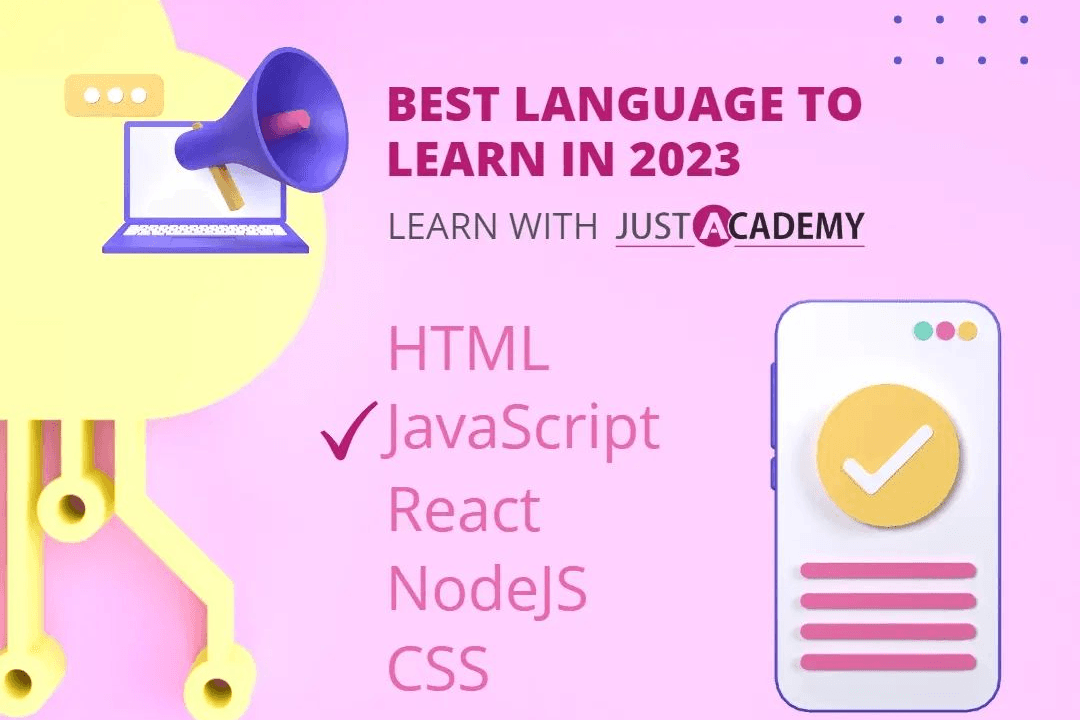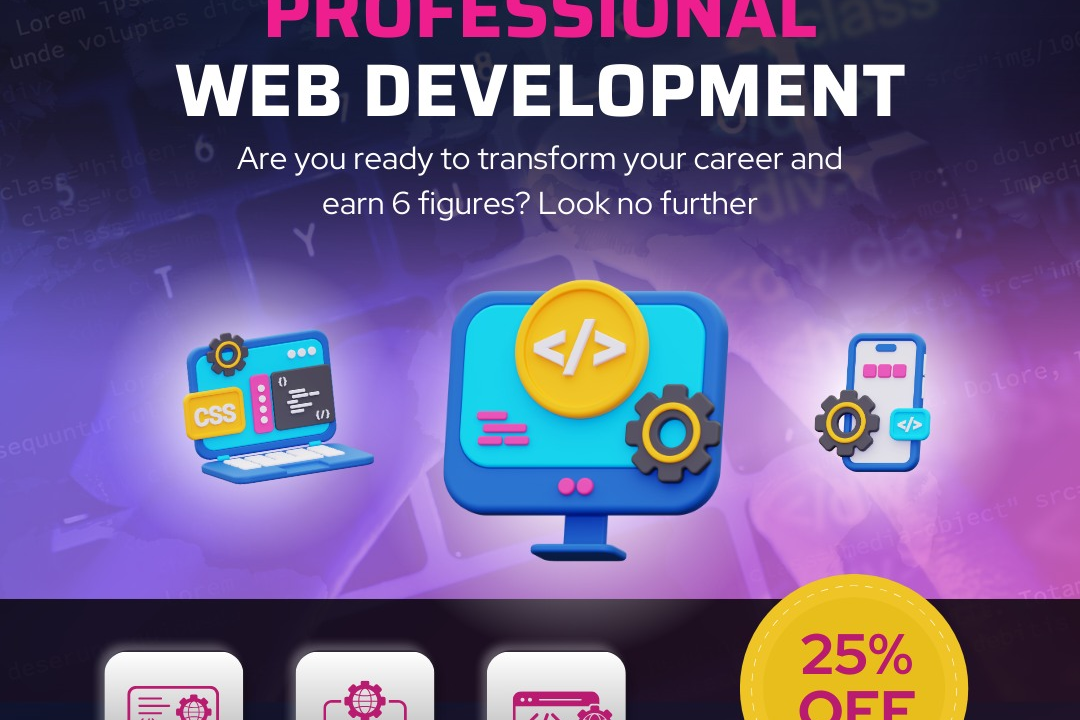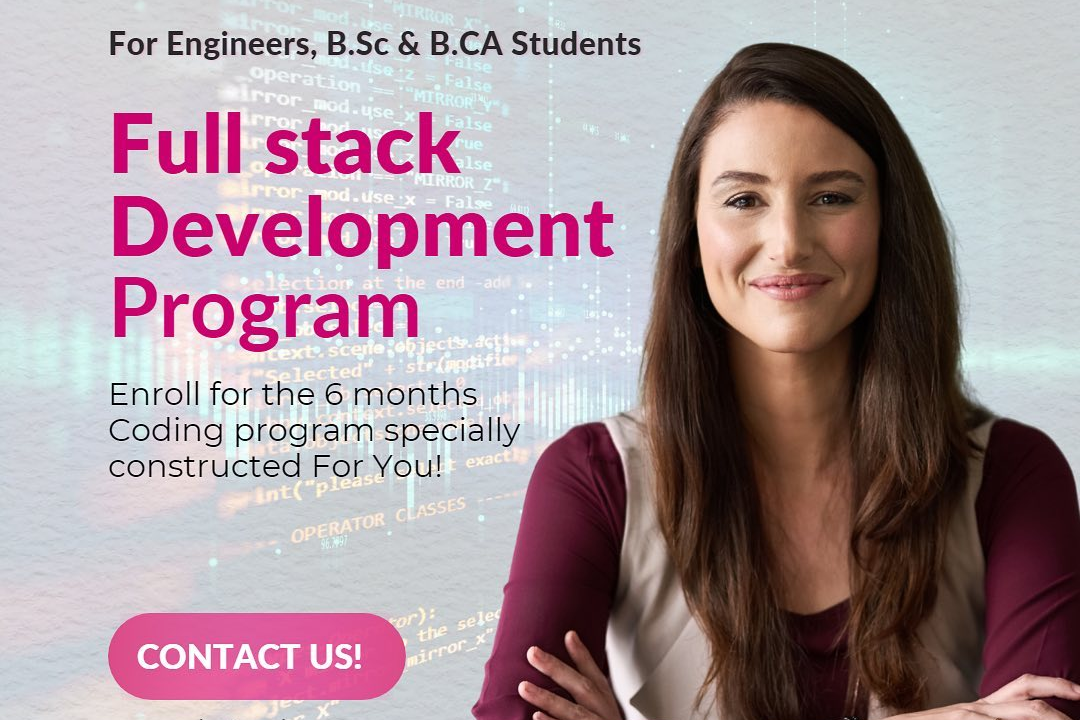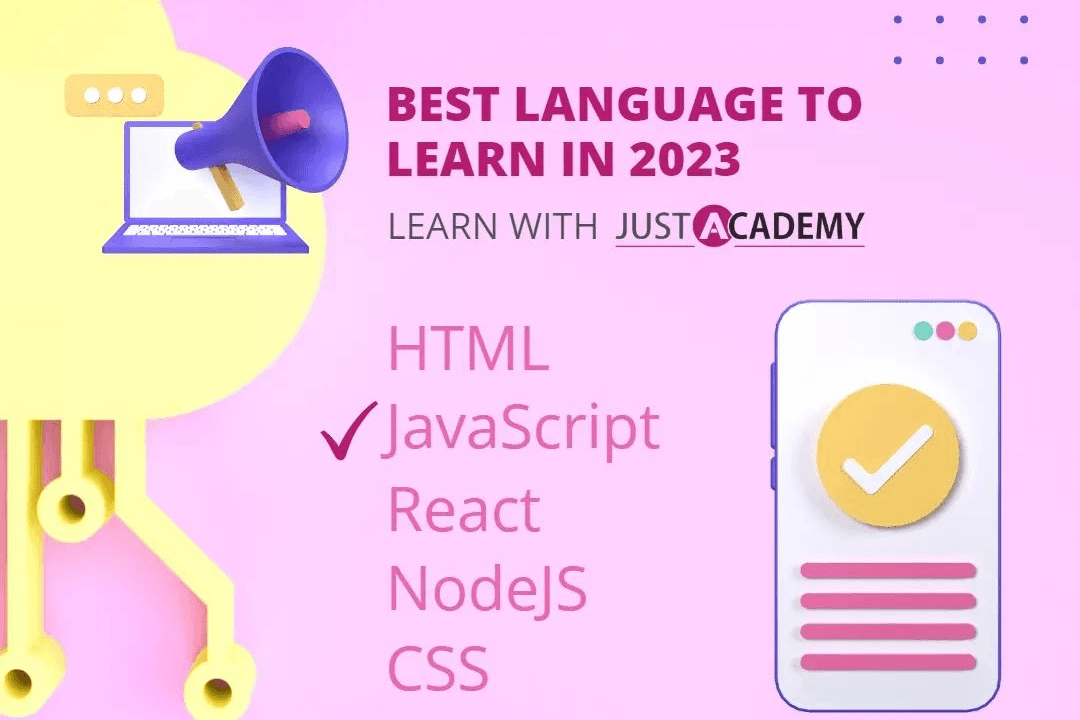Laravel Interview Questions Answer
Essential Laravel Interview Questions and Answers for 2023
Laravel Interview Questions Answer
Laravel interview questions and answers serve as a vital resource for both aspiring and experienced developers looking to excel in job interviews. These questions not only cover fundamental concepts of the Laravel framework but also delve into advanced topics such as routing, middleware, Eloquent ORM, and security features. By familiarizing oneself with these common queries, candidates can enhance their understanding of Laravel's architecture and best practices, ultimately boosting their confidence and performance during interviews. Additionally, having a solid grasp of potential questions allows developers to articulate their knowledge effectively, showcasing their readiness to tackle real-world projects with the Laravel framework.
To Download Our Brochure: https://www.justacademy.co/download-brochure-for-free
Message us for more information: +91 9987184296
1 - What is Laravel?
Laravel is a PHP framework designed for building web applications following the MVC (Model View Controller) architectural pattern. It provides a robust set of tools and libraries that help developers create clean and maintainable code.
2) What are the features of Laravel?
Some key features of Laravel include Eloquent ORM for database interactions, Blade templating engine, built in authentication, routing system, artisan command line interface, and support for unit testing.
3) What is Eloquent ORM in Laravel?
Eloquent is Laravel's Object Relational Mapping (ORM) system that allows developers to interact with the database using an expressive syntax, simplifying database operations without writing raw SQL queries.
4) Explain middleware in Laravel.
Middleware in Laravel acts as a filtering mechanism that processes HTTP requests entering the application. It can be used for authentication, logging, and CORS management, allowing developers to execute code before and after requests are handled.
5) How does routing work in Laravel?
Routing in Laravel is defined in the `routes/web.php` file, allowing developers to map URLs to specific controller actions or closure functions. It supports various HTTP methods, route parameters, and named routes.
6) What is Blade in Laravel?
Blade is the templating engine provided by Laravel, enabling developers to create clean and reusable views through a simple syntax, including control structures and template inheritance.
7) What is a service provider in Laravel?
Service providers are the central place to configure and bootstrap application services in Laravel. They are responsible for binding classes into the service container and registering any necessary functionality.
8) What is the purpose of migration in Laravel?
Migrations in Laravel allow developers to version control their database schema changes, enabling easy collaboration and tracking of modifications. They can create, modify, and delete database tables from PHP code.
9) How can you handle file uploads in Laravel?
File uploads in Laravel can be handled using the `Request` object to retrieve the uploaded files. The framework provides convenient methods for validating, storing, and managing files within the application.
10) What is CSRF protection in Laravel?
Cross Site Request Forgery (CSRF) protection in Laravel prevents unauthorized commands from being transmitted from a user that the web application trusts. Laravel uses CSRF tokens to verify that requests made to the application are legitimate.
11 - Explain Laravel’s service container.
Laravel's service container is a powerful tool for dependency injection, allowing developers to manage class dependencies and perform inversion of control, making the code more modular and testable.
12) What are events in Laravel?
Events in Laravel provide a simple observer implementation that allows you to subscribe to and listen for various actions within the application, promoting a decoupled architecture and enabling event driven programming.
13) What is an artisan command in Laravel?
Artisan is the command line interface included with Laravel. It provides various commands for tasks like database migrations, generating code, and running tests, enhancing developer productivity.
14) How do you implement authentication in Laravel?
Laravel provides built in authentication features, including user registration, login, and password management, through its `Auth` facade. Developers can easily customize authentication logic using guards and providers.
15) What are form requests in Laravel?
Form requests are custom request classes that encapsulate the validation logic for incoming data. They allow developers to validate and authorize requests easily, keeping controller code clean and organized.
Here are additional essential concepts and functionalities of Laravel that are beneficial for understanding and utilizing the framework effectively:
16) What is Laravel Mix?
Laravel Mix is a powerful asset management tool that simplifies the process of compiling and optimizing CSS and JavaScript assets. It provides a clean API for defining Webpack build steps, helping developers manage assets easily.
17) How does Laravel handle sessions?
Laravel provides a unified API for session management and supports multiple session storage options, including file, cookie, database, Redis, and others. Developers can easily store, retrieve, and manage session data throughout the application.
18) What are Laravel’s job queues?
Laravel’s job queues allow developers to defer the processing of time consuming tasks, such as sending emails or processing uploads, to a background process. This improves application responsiveness and efficiency.
19) Explain the concept of policies and gates in Laravel.
Policies and gates in Laravel provide a way to authorize user actions. Gates are simple closure based authorization checks, while policies are classes that organize authorization logic for specific models, enhancing security and organization.
20) What is the purpose of the Laravel Scout?
Laravel Scout provides a simple, driver based solution for adding full text search functionality to Eloquent models. It integrates seamlessly with various search engines like Algolia and MeiliSearch, allowing for powerful search capabilities.
21 - How do you handle localization in Laravel?
Localization in Laravel allows developers to create applications that can support multiple languages. Using language files, developers can easily translate strings and manage localization for the duration of the application.
22) What is the purpose of the `config` directory in Laravel?
The `config` directory in Laravel contains configuration files for different aspects of the application, such as database connections, mail settings, and caching options. These files allow developers to customize application behavior easily.
23) Explain the concept of route model binding.
Route model binding is a feature in Laravel that allows developers to automatically inject model instances into routes based on route parameters. This enhances clarity and reduces the need for manual database queries.
24) What are command line arguments in Laravel?
Laravel allows developers to define command line arguments for custom Artisan commands. This can be useful for providing configurations or options when running commands, enhancing the flexibility of the command line interface.
25) How does Laravel implement caching?
Laravel provides a unified API for various caching systems, including file, database, Memcached, and Redis. Developers can easily store, retrieve, and manage cached data to optimize application performance and reduce server load.
26) What is the significance of the `.env` file in Laravel?
The `.env` file in Laravel is used for environment configuration. It stores sensitive information such as database credentials, API keys, and application settings, enabling developers to manage configurations securely across different environments.
27) How can you use Laravel’s artisan to create controllers?
Using Artisan, developers can generate controllers via the command line with the command `php artisan make:controller ControllerName`. This speeds up the development process by scaffolding the necessary files and structures.
28) What are models in Laravel?
Models in Laravel represent the data structure and the corresponding table in the database. They provide an abstraction layer for data manipulation, helping developers interact with the database using Eloquent ORM.
29) What is Laravel’s notification system?
Laravel's notification system allows developers to send notifications through various channels like email, SMS, and Slack. It provides a consistent API, making it easy to send alerts to users in different formats.
30) How do you implement API resources in Laravel?
API resources in Laravel provide a way to transform models and collections into JSON format, simplifying the creation of RESTful APIs. Developers can define resource classes to determine how data should be formatted before being returned to the client.
These points cover a broad spectrum of Laravel's capabilities, showcasing its flexibility, power, and ease of use, making it a popular choice for modern web development. Each of these concepts is valuable for developers who wish to harness the full potential of the framework.
Course Overview
The “Laravel Interview Questions & Answers” course is designed to equip participants with the essential knowledge and skills needed to excel in interviews focused on Laravel frameworks. This comprehensive course covers a wide range of topics, including Eloquent ORM, routing, middleware, authentication, and advanced features such as job queues and service providers. Through a structured format, learners will gain insights into commonly asked interview questions, best practices, and real-world scenarios, enabling them to confidently articulate their understanding of Laravel. By the end of the course, participants will be well-prepared to tackle technical interviews and demonstrate their proficiency in Laravel development.
Course Description
The ‘Laravel Interview Questions & Answers’ course offers a comprehensive exploration of essential concepts and advanced features of the Laravel framework, aimed at helping learners prepare effectively for technical interviews. Through a curated selection of frequently asked interview questions and detailed answers, participants will dive into critical topics such as Eloquent ORM, routing, validation, authentication, and performance optimization. The course is designed to enhance both theoretical knowledge and practical skills, enabling candidates to articulate their expertise confidently while tackling real-world scenarios. By the end of the course, learners will have a solid foundation and the confidence to impress potential employers with their Laravel proficiency.
Key Features
1 - Comprehensive Tool Coverage: Provides hands-on training with a range of industry-standard testing tools, including Selenium, JIRA, LoadRunner, and TestRail.
2) Practical Exercises: Features real-world exercises and case studies to apply tools in various testing scenarios.
3) Interactive Learning: Includes interactive sessions with industry experts for personalized feedback and guidance.
4) Detailed Tutorials: Offers extensive tutorials and documentation on tool functionalities and best practices.
5) Advanced Techniques: Covers both fundamental and advanced techniques for using testing tools effectively.
6) Data Visualization: Integrates tools for visualizing test metrics and results, enhancing data interpretation and decision-making.
7) Tool Integration: Teaches how to integrate testing tools into the software development lifecycle for streamlined workflows.
8) Project-Based Learning: Focuses on project-based learning to build practical skills and create a portfolio of completed tasks.
9) Career Support: Provides resources and support for applying learned skills to real-world job scenarios, including resume building and interview preparation.
10) Up-to-Date Content: Ensures that course materials reflect the latest industry standards and tool updates.
Benefits of taking our course
Functional Tools
1 - Laravel Framework: The foundation of this course revolves around the Laravel framework, which is known for its elegance and expressive syntax. Students will learn how to leverage Laravel's robust features such as routing, middleware, and Eloquent ORM to build web applications efficiently. Understanding Laravel in depth prepares students not only for technical interviews but also equips them to handle real world projects, enhancing their coding capabilities.
2) PHP: As the primary programming language used in Laravel, PHP is central to this course. Students will refine their PHP skills, focusing on object oriented programming concepts, data manipulation, and web server interaction. Comprehensive knowledge of PHP is crucial for any Laravel developer, as it empowers them to create dynamic web applications and understand how Laravel operates under the hood.
3) MySQL Database: Understanding database management is essential for any web developer. In this course, students will work with MySQL to grasp how to design and interact with databases effectively. They will learn how to perform CRUD operations, manage relationships between data using Laravel's Eloquent ORM, and gain insights into writing efficient SQL queries. This knowledge is vital when preparing for interviews, where database questions are common.
4) Git Version Control: Mastery of Git is emphasized to ensure students can manage their codebase effectively. The course covers essential Git commands, branching, and merging strategies, providing hands on experience with version control best practices. This skill is critical for collaborative projects and maintaining code integrity, which is often assessed during technical interviews.
5) RESTful APIs: Students will learn how to design and consume RESTful APIs using Laravel. This aspect of the course empowers students to understand how to create web services, integrate third party APIs, and implement authentication strategies. Familiarity with RESTful APIs is increasingly important in modern web development, as many job roles require the ability to work with asynchronous data retrieval and client server interactions.
6) Testing and Debugging Tools: The course introduces various testing methodologies and debugging tools, allowing students to learn how to write tests using PHPUnit and Laravel's built in testing features. Emphasizing test driven development (TDD) promotes the writing of reliable and maintainable code. Understanding testing practices not only enhances the students' coding skills but also prepares them for interviews, where they might be asked about their approach to testing and maintaining code quality.
By integrating these tools into the curriculum, the “Laravel Interview Questions & Answers” course creates a comprehensive educational experience, ensuring students are thoroughly prepared to excel in both interviews and real world development environments.
Certainly! Here are additional points that enhance the content of the “Laravel Interview Questions & Answers” course offered by JustAcademy, focusing on key skills and knowledge areas that can help students excel in interviews and practical applications:
7) Authentication and Authorization: Understanding Laravel’s built in authentication and authorization features is crucial for web developers. Students will dive into user registration, login systems, password resets, and role based access control (RBAC). This knowledge is essential when discussing security practices in interviews, as employers prioritize candidates who can implement secure authentication mechanisms.
8) Blade Templating Engine: The course covers Laravel's Blade templating engine, allowing students to create dynamic and reusable views. Students will learn about Blade syntax, template inheritance, and how to pass data from controllers to views. Mastery of Blade is important for creating engaging user interfaces, which is often a focal point in developer interviews.
9) Middleware: Understanding middleware and its role within Laravel applications is a critical topic. Students will learn how to create and register middleware to handle requests and responses, offering functionality such as logging, CORS, and input validation. This skill set equips students to explain their application architecture effectively in interviews while demonstrating their technical know how.
10) Task Scheduling and Queue Management: Laravel offers task scheduling and queue management capabilities that are essential for building scalable applications. Students will understand how to create scheduled tasks and manage queues for processing jobs asynchronously. Knowledge of these features can set candidates apart in interviews, especially for positions requiring high performance applications.
11 - Laravel Mix: This build tool simplifies asset compilation using tools like Webpack. Students will learn how to manage frontend assets, compile CSS and JS files, and optimize their applications for production. Familiarity with asset management is essential for full stack developers, and this knowledge enhances students' profiles in job interviews.
12) Unit and Feature Testing: Beyond basic testing concepts, the course will delve into writing unit tests and feature tests. Students will learn the importance of maintaining automated tests and how to use them to validate application functionality. In technical interviews, candidates who can discuss their testing strategies and experiences often stand out amongst peers.
13) Deployment Strategies: Understanding how to properly deploy Laravel applications is vital for developers. The course will touch on various deployment platforms, CI/CD practices, and environment configuration. Knowing how to deploy applications and what pitfalls to avoid can be a topic of discussion in interviews, showcasing candidates’ readiness for real world challenges.
14) Using Composer for Dependency Management: Students will learn how to utilize Composer, PHP’s dependency manager, to manage libraries and dependencies within Laravel projects. This skill is essential for maintaining a clean and organized project, and discussing it in interviews demonstrates a solid grasp of PHP development practices.
15) Environment Configuration and .env Files: Configuring environment specific settings using .env files is a crucial aspect of Laravel development. Students will understand how to set up configuration variables for different environments (development, testing, production) and ensure their applications are secure and flexible. Proficiency in this area showcases attention to detail and operational awareness—qualities valued by employers.
16) Design Patterns: The course will introduce common design patterns used within Laravel applications, such as MVC (Model View Controller) and Repository patterns. Understanding these patterns helps students write clean, maintainable, and scalable code, and is often a subject of inquiry during technical interviews.
17) Debugging with Laravel Debugbar: Students will learn to use tools like Laravel Debugbar for debugging their applications efficiently. Knowing how to monitor queries, request data, and profiling applications allows students to optimize their code, making them more effective developers. Being able to discuss debugging experiences is often a critical part of technical interviews.
By covering these comprehensive skills and concepts, JustAcademy's “Laravel Interview Questions & Answers” course equips students with the knowledge they need not only to excel in interviews but also to succeed in their professional careers as Laravel developers.
Browse our course links : https://www.justacademy.co/all-courses
To Join our FREE DEMO Session:
This information is sourced from JustAcademy
Contact Info:
Roshan Chaturvedi
Message us on Whatsapp:
Email id: info@justacademy.co












